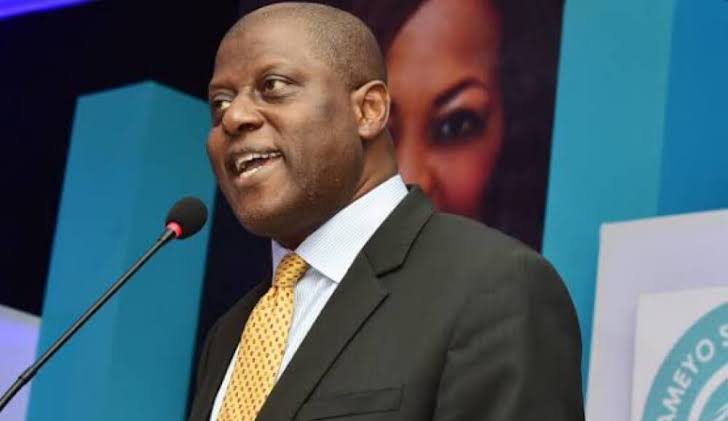Olayemi Cardoso, the Central Bank of Nigeria (CBN) governor, has said hiking the interest rate is the best way to battle inflation.
This is as the apex bank boss said the number one bank in the country is committed to its unwavering commitment to monetary tightening, stating that the bank would continue its stance until inflation reaches a tolerable level.
Speaking at the 297th Monetary Policy Committee (MPC) meeting in Abuja on Tuesday, Cardoso defied experts’ projections that suggested a reduction in the Monetary Policy Rate (MPR) was imminent.
In a surprise move, the MPC announced an increase in the MPR by 50 basis points, raising it from 26.75 per cent to 27.25 per cent.
The committee retained the asymmetric corridor around the MPR at +500/-100 basis points.
In addition, the Cash Reserve Ratio (CRR) for Deposit Money Banks (DMBs) was raised by 500 basis points to 50 per cent, and for Merchant Banks by 200 basis points to 16 per cent. The Liquidity Ratio was maintained at 30 per cent.
Cardoso’s message was clear: “Inflation remains the central challenge for the bank, and all tools at its disposal will continue to be used to bring it under control.
“As Central Bank, this is something I’ve said before, and I’m not tired of saying it: we are resolute in our focus on bringing down inflation.
“We will use all the tools at our disposal to ensure that happens. We are not going to spare any effort.”
He emphasised the bank’s success in gradually reducing inflation but cautioned that the battle is far from over.
“The fact that we are seeing reductions in inflation over the last month and a half is encouraging, but we are not out of the woods yet,” he said, adding: “We really cannot take any chances.”
Cardoso stressed that moderating inflation, particularly food inflation, remains a priority for the CBN.
He acknowledged ongoing dialogues with other stakeholders to ensure food prices stabilise, while also noting that other external factors are contributing to rising prices.
He said: “It’s clear there are other factors affecting prices and public demand that need focus, and that is why we are committed to tightening until we bring this under control.”
The CBN Governor highlighted the broader economic implications of high inflation, asserting that “there is no economic model that tends to take people out of poverty when inflation is accelerating at the levels we are seeing.”
Cardoso reflected on the CBN’s actions over the past year regarding foreign exchange policy, stating how those measures have restored investor confidence.
The clearance of a backlog of forex obligations has been a key part of this effort, he said, adding that the measures have positioned Nigeria’s economy for recovery.
“We came into a very loose money supply situation,” Cardoso noted.
He pointed out that between 2015 and 2023, the money supply in Nigeria surged from N19 trillion to N54 trillion, much of which was driven by money printing.
“This huge increase created a situation where too much money was chasing too few goods,” he added, underscoring the distortion caused by such practices.
With the collapse in global oil prices in 2015, Nigeria’s foreign exchange reserves dwindled.
